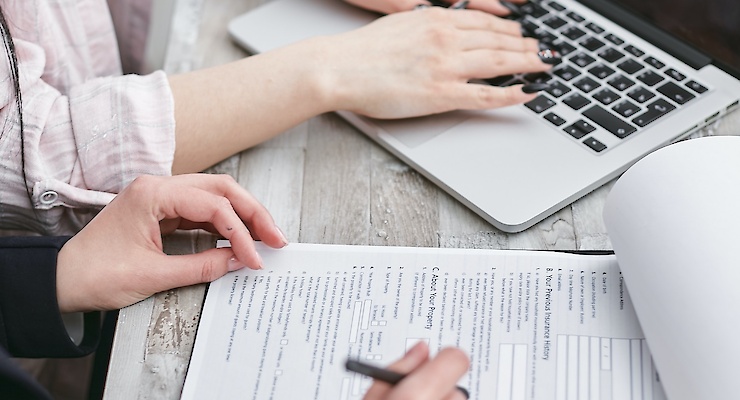


Head of Content

Mortgage Advisor & Director
What is an accidental landlord?

An accidental landlord is keen to move home but without selling their property.
While becoming a landlord is a dream of many people looking to make a living from renting out property, some people unintentionally or unwillingly become landlords. Selling up is not always so straightforward, as many of our readers will appreciate, and sometimes you may find yourself in a situation where you need to rent out your home, either on a short or long term basis.
Why would someone become an accidental landlord?
There are several reasons or life events that leave people in a position of renting out their home.
- Suppose you are moving out of the area to start new employment but cannot find a buyer in time. In that case, you may choose to rent your home to fund your new living arrangements, potentially for a year or so, until you're comfortable that the situation is permanent.
- Another reason could be if you're moving in with a new partner who already owns a home and you're keen to preserve your own home ownership, either for security reasons or financial gain.
- If there is a new baby on the way and your current living arrangements are unsuitable, you may find renting out your home to allow the onward rental of a more suitable property is the only realistic option in the short term.
Do I need to change my mortgage to rent out my home?
If you're looking to rent out your home and have a mortgage, you'll need to contact your lender.
If you're only planning on renting out in the short term (typically less than 12 months), the most straightforward way is to secure consent to let from your lender. This allows you to stick with your existing mortgage, and you may choose to sell the property or move back in afterwards. If you think you'll get a better price for your home in a year and are prepared to wait, this may be the option for you.
You should know that your lender is not obliged to grant a consent to let, and this will depend on the lender, the property and your individual circumstances.
Be mindful that you'll be liable for second home stamp duty tax if you're holding on to your existing home and buying a second property. If you sell your original home within three years, you'll be able to claim back this additional stamp duty.
Will I need a buy to let mortgage?
If you're planning on renting out your home on a long-term basis, you'll need to get a new buy to let mortgage. There are several differences between a buy to let mortgage and a residential mortgage.
- BTL mortgages tend to come with higher interest rates and increased deposit requirements.
- As well as your personal situation, the investment viability of the rental property will also be taken into account.
- Most BTL mortgages are offered on an interest-only repayment basis.
- Most lenders will only accept applications from homeowners.
Will I pay income tax as an accidental landlord?
Yes, as a source of income, you'll need to pay income tax on your rental earnings.
Historically, landlords were able to claim tax relief on mortgage interest payments. Now, regardless of their tax band, landlords are required to pay tax on the whole income and claim tax relief at a flat rate of 20%.
What are my legal obligations as an accidental landlord?
As well as tax obligations, you'll also need to ensure you comply with relevant regulations when you start renting out your home.
- As a landlord, you are responsible for ensuring that the property is safe for occupation by your tenants. You'll need to make sure you adhere to fire safety regulations, confirm that your electrical fittings are safe, performing gas safety checks using a registered engineer, as well as providing tenants with safety check records.
- You'll need to check that your tenant has a legal right to rent in this country. Failure to do so may result in a hefty fine or even time in prison. You'll find a list of documentation that you need to check on the gov.uk website.
- Depending on the location of the rental property, you may need to obtain a license before your start renting out to tenants. This is to demonstrate that the property is up to standard, and you will typically need to pay for a license.
- Landlords must retain any deposit received by a tenant in a government-approved tenancy deposit scheme - either MyDeposits, Tenancy Deposit Scheme or the Deposit Protection Service.
What insurance will I need as an accidental landlord?
When you're renting out your home, you'll need specialist landlord insurance to make sure you're covered for events such as damage by the tenant and loss of rent. Your existing standard home insurance will not cover these items, and we would recommend speaking to an insurance specialist to make sure you're protected.
Apply for a buy to let mortgage
If you're not sure whether you need to obtain consent to let or a buy to let mortgage, our team of experts can help. We've helped many landlords take their first steps into renting out their property, securing market-leading deals from more than 100 lenders.
We've moved the application online, removing the time consuming and unnecessary steps and making the whole process as stress-free as possible. Get started now and you could be comparing deals within minutes!
Choosing an Adviser
Selecting a qualified and experienced mortgage adviser is of great importance. To choose a suitable adviser, evaluate their qualifications, experience, and reputation, and ensure they are regulated by the Financial Conduct Authority (FCA).
Read reviews from previous clients and make sure they provide a clear explanation of the products and services they offer, as well as the fees and charges associated with them.

























































































































































